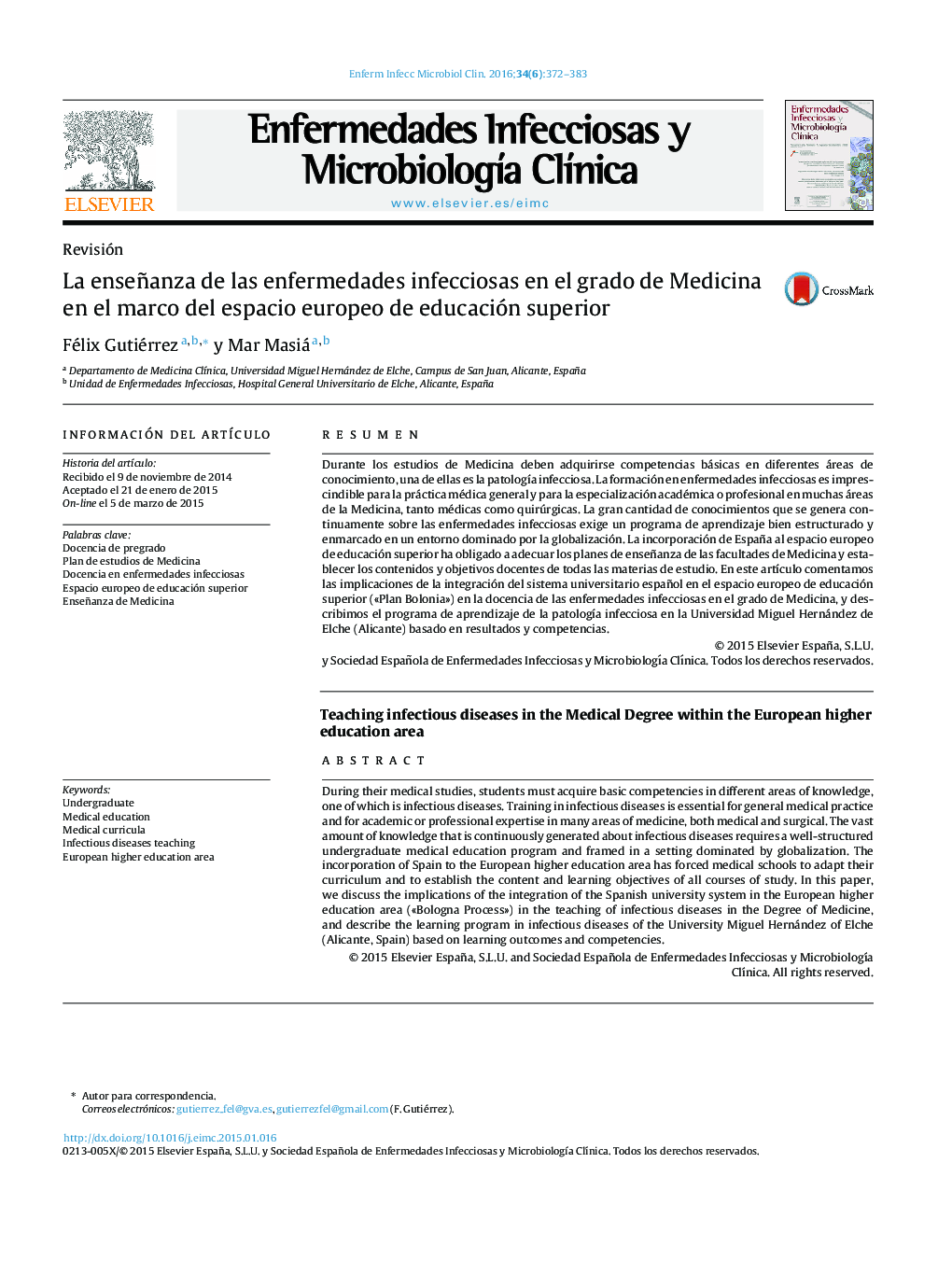| Article ID | Journal | Published Year | Pages | File Type |
|---|---|---|---|---|
| 3400529 | Enfermedades Infecciosas y Microbiología Clínica | 2016 | 12 Pages |
Abstract
During their medical studies, students must acquire basic competencies in different areas of knowledge, one of which is infectious diseases. Training in infectious diseases is essential for general medical practice and for academic or professional expertise in many areas of medicine, both medical and surgical. The vast amount of knowledge that is continuously generated about infectious diseases requires a well-structured undergraduate medical education program and framed in a setting dominated by globalization. The incorporation of Spain to the European higher education area has forced medical schools to adapt their curriculum and to establish the content and learning objectives of all courses of study. In this paper, we discuss the implications of the integration of the Spanish university system in the European higher education area («Bologna Process») in the teaching of infectious diseases in the Degree of Medicine, and describe the learning program in infectious diseases of the University Miguel Hernández of Elche (Alicante, Spain) based on learning outcomes and competencies.
Keywords
Related Topics
Life Sciences
Immunology and Microbiology
Microbiology
Authors
Félix Gutiérrez, Mar Masiá,
